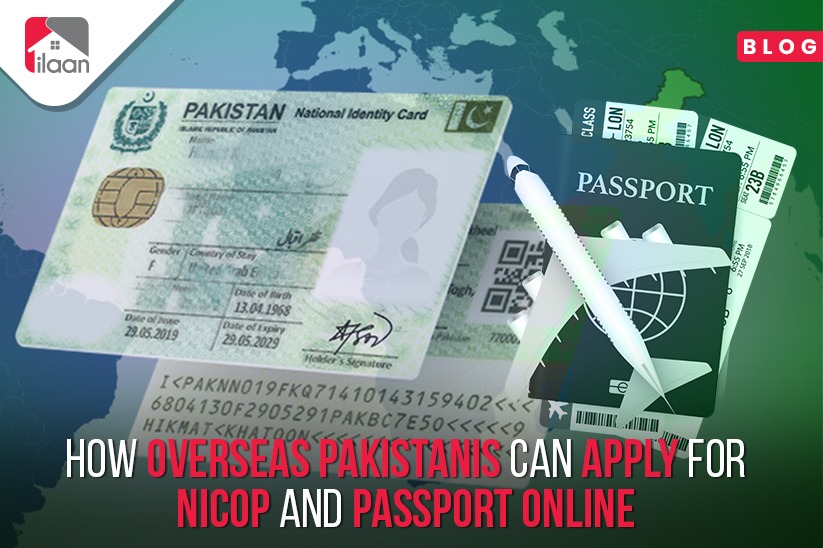Starting a small business in Pakistan in 2025 is easier than ever thanks to digital portals, streamlined tax processes, and online registrations. Whether you're launching a startup, freelancing legally, or formalizing an existing setup, registering your business brings credibility, tax benefits, and growth potential. This complete 2025 guide explains how to register a small business in Pakistan, with steps for SECP, FBR, Punjab/Sindh/KPK/Balochistan portals, bank account opening, tax registration, and more.
Why Registering Your Small Business Matters in 2025
Many people in Pakistan still operate informally especially freelancers, online sellers, and small shop owners. But in 2025, formal registration is becoming crucial due to:
-
Digital payments (banks require NTN + proper business profile)
-
eCommerce platforms (Daraz, TikTok Shop, Amazon require legal documentation)
-
Government SME loans (e.g., Kamyab Jawan Program, PM Youth Loans)
-
Tax compliance to avoid penalties
-
Import/export opportunities
-
Brand name protection
Types of Business Registration in Pakistan (2025)
Choosing the right business structure is one of the most important decisions for any entrepreneur in Pakistan. It affects everything from your taxes and bank account requirements to your legal protections and future growth options. In 2025, Pakistan offers several ways to legally operate a business, but three structures continue to dominate because they are practical, accessible, and suitable for small businesses: Sole Proprietorship, Partnership Firm, and Private Limited Company. Each option comes with advantages and limitations, so understanding the differences helps you choose the model that aligns with your goals and resources.
Sole Proprietorship: The Easiest Way to Start a Business
A Sole Proprietorship is the simplest and most widely used business type in Pakistan, especially for freelancers, small shop owners, online sellers, tutors, consultants, influencers, and home-based entrepreneurs. This structure is registered through the FBR NTN system, meaning it does not require SECP approval. Because it is quick to set up, inexpensive, and manageable without legal advisors, it’s the perfect choice for early-stage businesses. The owner and business are legally the same entity, so the proprietor is personally responsible for all profits, losses, debts, and risks. While this lack of liability protection is a limitation, most new entrepreneurs still prefer this structure due to its speed, flexibility, and minimal maintenance.
Partnership Firms (AOP): Best for Businesses With Multiple Founders
A Partnership Firm, officially classified as an Association of Persons (AOP), is the next step up for those starting a business with partners. This structure suits small agencies, co-owned shops, trading businesses, real estate offices, and family-run ventures. The core of an AOP is the Partnership Deed, a legal document describing partner roles, profit-sharing arrangements, responsibilities, dispute resolution mechanisms, and overall business structure. Once this deed is submitted to the Registrar of Firms, you receive Form C, which confirms your firm is officially registered. Afterward, you must apply for an AOP NTN from FBR to begin legal operations and open a partnership bank account. While an AOP offers shared investment and shared responsibility, it still lacks the liability protection provided by a company, and internal disputes can slow operations if not properly planned.
Private Limited Company: The Most Professional and Secure Business Type
A Private Limited Company (Pvt Ltd), regulated by the Securities and Exchange Commission of Pakistan (SECP), is the most structured, credible, and scalable business format available. This option is best for startups, tech companies, eCommerce brands, IT firms, SMEs, growing agencies, and anyone looking to attract investors or pursue long-term expansion. Incorporating a Pvt Ltd takes several steps, including name reservation, submission of incorporation documents, verification of directors, and drafting of the Memorandum and Articles of Association. Once approved, the business receives a Certificate of Incorporation, granting it a legally recognized corporate identity. One of the biggest advantages of this structure is limited liability, meaning the company is responsible for its own debts, not the personal assets of its directors. Although compliance and administrative requirements are higher, the credibility and protection offered by this structure make it the top choice for serious entrepreneurs.
Other Specialized Business Formats in Pakistan
Pakistan also has several additional business structures, each designed for specific cases. These include Single Member Companies (SMCs) for solo founders who still want limited liability, Public Limited Companies for larger organizations planning public investment, NGOs and Non-Profit Associations registered under Section 42, Branch Offices for foreign companies entering Pakistan, and Limited Liability Partnerships (LLPs), which combine features of partnerships and companies. Although these structures offer important advantages—such as enhanced governance, investor-friendly frameworks, or nonprofit status—they are not commonly chosen by small startups or early-stage entrepreneurs due to higher documentation requirements and ongoing regulatory oversight.
Step-by-Step Guide to Register a Small Business in Pakistan
-
Decide your business structure
-
Choose: Sole Proprietorship, Partnership (AOP), Private Limited (Pvt Ltd), or SMC.
-
Quick rule: Sole = simplest; AOP = shared ownership; Pvt Ltd/SMC = limited liability & credibility.
-
-
Pick & check your business name
-
For Pvt Ltd/SMC → use SECP name availability tool.
-
For Sole/AOP → check FBR/IRIS profile and local trade directories.
-
Avoid restricted words (e.g., “Bank”, “Federal”, “Trust”) and trademark conflicts.
-
-
Prepare identity & address documents
-
CNIC of owner(s)/directors.
-
Proof of business address (utility bill, rent agreement, or ownership).
-
Active mobile number + email in owner’s name.
-
Passport photos if required.
-
-
Register for NTN (FBR — IRIS)
-
Create IRIS account → apply for NTN (Individual / Sole Proprietor / AOP / Company).
-
Required: CNIC, business address proof, contact details.
-
Download/keep NTN certificate — mandatory for banking & tax.
-
-
Incorporate your legal entity (if applicable)
-
Sole Proprietorship: no SECP step — operate on NTN.
-
Partnership (AOP):
-
Draft and sign Partnership Deed (stamp paper), register with Registrar of Firms, obtain Form C.
-
Apply for AOP NTN.
-
-
Private Limited / SMC:
-
Reserve name on SECP, prepare MoA & AoA, submit incorporation forms online, pay challan, get Certificate of Incorporation.
-
-
-
Register for Sales Tax / STRN (if applicable)
-
If you sell taxable goods or specified services → register for Sales Tax / STRN via FBR or provincial revenue authority (PRA, SRB, KPRA, BRA).
-
Keep invoices & supplier records for input tax credits.
-
-
Open a business bank account
-
Sole proprietor: NTN, CNIC, business letterhead, proof of address.
-
AOP: Partnership deed + Form C + AOP NTN.
-
Pvt Ltd/SMC: Certificate of Incorporation, Board Resolution, Company NTN, MoA/AoA.
-
Ask the bank about merchant services / payment gateway integration.
-
-
Obtain additional licenses & permits
-
Check industry-specific requirements and local municipal rules. Common examples:
-
Food businesses: Food Authority license + municipal NOC.
-
Retail shop: Trade license from local municipality.
-
Import/Export: WeBOC registration with customs.
-
Pharmacy / Healthcare: DRAP registration / pharmacy license.
-
IT / Telecom hardware: PTA approvals.
-
-
Apply early — many authorities now offer online portals.
-
-
Register trademarks & protect IP (optional but recommended)
-
Apply to IPO Pakistan to protect your brand name/logo.
-
Use before scaling or launching products.
-
-
Set up accounting & compliance
-
Choose accounting software or hire a bookkeeper.
-
Maintain sales invoices, purchase invoices, payroll records.
-
Register for sales tax filing schedule (monthly/quarterly) and income tax filing (annual).
-
For companies: maintain statutory books, minutes, and annual returns for SECP.
-
-
Apply for government support / financing (optional)
-
With a registered business you can apply for SME loans, startup schemes, grant programs, and vendor registrations (e.g., PSX vendors, government tenders).
-
-
Begin operations & maintain ongoing compliance
-
File regular tax returns (FBR e-filing).
-
Renew trade licenses, renew any sector-specific permits, and submit annual SECP returns (for companies).
-
Keep digital copies of all documents and receipts.
-
Quick Documents Checklist
-
CNIC(s) of owner(s)/directors
-
Business address proof (utility bill / rent deed)
-
Partnership Deed + Form C (for AOP)
-
MoA & AoA + Incorporation Certificate (for Pvt Ltd/SMC)
-
NTN certificate (FBR)
-
Bank KYC documents / paid challans
-
Industry-specific licenses (food, pharma, trade license, PTA, etc.)
Fast Timelines
-
NTN (sole/AOP): 1–3 days
-
Partnership registration (AOP): ~5–10 days
-
SECP incorporation (Pvt Ltd/SMC): 2–5 days (digital process)
-
Sales tax / provincial registrations: 1–7 days depending on authority
(Timelines vary by province and document completeness.)
Conclusion
Registering a small business in Pakistan in 2025 is easier, faster, and more transparent than ever—thanks to complete digitalization across SECP, FBR, and provincial authorities. Whether you choose a sole proprietorship, partnership, SMC, or private limited company, the registration process gives your business legal protection, credibility, and access to financial opportunities that informal businesses simply cannot access.
By following the step-by-step process—from choosing your business structure to obtaining your NTN, incorporating with SECP, opening a business bank account, and applying for any necessary licenses—you set a strong foundation for long-term growth. A registered business can secure contracts, access investments, apply for government SME programs, and operate confidently without the fear of fines or penalties.
In a competitive and evolving economy, formalizing your business is no longer optional. If you want to build trust with customers, scale your operations, and tap into Pakistan’s growing digital ecosystem, registering your business in 2025 is the smartest investment you can make.
Keep reading Ilaan's blog section for more informative posts.
Recent Blog

A Complete Guide to Studying Abroad from Paki...
26 Dec 2025

How to Get Paid Internationally from Pakistan...
19 Dec 2025

How to Apply for HEC Degree Attestation Onlin...
16 Nov 2025

How to Register a Small Business in Pakistan ...
16 Nov 2025



